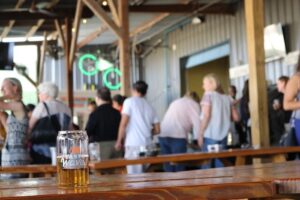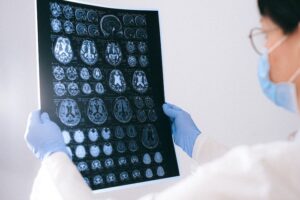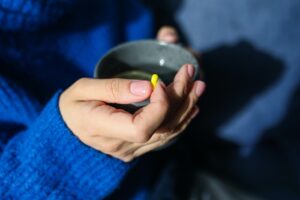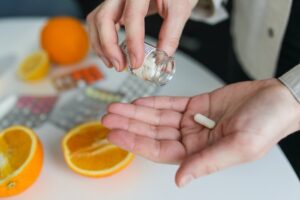Drug & Alcohol Rehab in Bournemouth
Click the links below for help with addiction and drug and alcohol rehab in Bournemouth
- Drug and alcohol addiction statistics in Bournemouth
- Signs a person may need rehab in Bournemouth
- Intervention before rehab in Bournemouth
- The costs of rehab in Bournemouth
- Detoxing at rehab in Bournemouth
- Therapy at rehab in Bournemouth
- Aftercare after rehab in Bournemouth
- Rehab referrals in Bournemouth
Drug and alcohol rehab and statistics in Bournemouth
Drug and alcohol rehab has helped many residents of Bournemouth to reach long-term recovery.
Bournemouth is a seaside town located on the south coast of the UK. Bournemouth is a very popular holiday destination, with a glorious beach and historic university town. However, Bournemouth is no stranger to drug and alcohol-related problems.
In 2016, a local government report uncovered several key findings regarding drug and alcohol use in Bournemouth and the problems that it caused.
It found that around 4,000 people were estimated to be using crack cocaine on a frequent basis and that the area was feeling the impact of this.
It was estimated that at least 40 people died that year due to drug use, along with 700 hospital admissions.[1] These statistics can be changed with rehab.
This goes to show why drug and alcohol rehab is so needed in Bournemouth.
An earlier study also reported that Bournemouth ranks within the top fifth of UK local authorities for alcohol dependency, ranking worse than England’s average at the time in alcohol-related and liver disease-related mortality.[2]
| Type of family with parental drug and alcohol issues | Bournemouth, Christchurch and Poole | England |
|---|---|---|
| Parent living with children | 15% | 18% |
| Other child contact – living with children | 19% | 6% |
| Parent not living with children | 25% | 30% |
| Not a parent and not in contact with children | 41% | 46% |
If you have developed an unhealthy relationship with drugs and alcohol, you may feel isolated in your struggles, but rehab can help.
Addiction is a huge problem in Bournemouth that is only getting worse over time. The town has one of the highest heroin and morphine overdose rates in the UK.
Many people turn to drug and alcohol misuse when faced with challenges in life, such as grief, divorce, and loneliness. After addiction takes hold, rehab can be necessary to recover.
Though substances can briefly numb your pain, they are guaranteed to cause more trials for you, from unemployment and crime to illness and potentially even death.
Here at OK rehab, we’re ready to help you find drug and alcohol rehab support for a wide range of addictions, including:
- Binge drinking and alcoholism treatment
- Benzodiazepine addiction treatment
- Buprenorphine addiction treatment
- Cannabis addiction treatment
- Cocaine rehab and crack cocaine addiction treatment
- Crystal meth and other amphetamine addiction treatment
- Ecstasy rehab
- Heroin addiction treatment and other forms of opiate addiction and opioid use disorder treatment
- Ketamine addiction treatment
- Prescription drug addiction treatment
- Treatment for behavioural addictions such as gambling addiction, shopping addiction, sex addiction, porn addiction and eating disorder treatment
The healthiest way to cope with your problems is to go to therapy and get to the root causes of your addiction.
A thorough and customised drug and alcohol treatment plan at rehab can help you beat addiction for good.
You can access addiction therapy in Bournemouth through an outpatient clinic or a residential rehab.
To find out which option would benefit you most, contact OK Rehab today and we will be happy to assist you.
Our experts only recommend the best CQC-registered rehab or other addiction treatment service for your particular needs, so you can be confident in the quality of your treatment.
Please call our 24-hour helpline to discuss drug and alcohol rehab in Bournemouth: 0800 326 5559
Bournemouth Addiction – Substance Abuse in Bournemouth

As it is so common for people to have an unhealthy relationship with alcohol and drugs, it can be hard to know when you need rehab.
This is especially difficult when there is the added factor of shame, as we are likely to reduce the significance of our problems, even to ourselves.
Drug and alcohol rehab in Bournemouth can help to heal these wounds.
Here are some signs that indicate you may be suffering from drug or alcohol dependence:
- You consume substances on a daily basis
- You suffer from drug or alcohol withdrawal symptoms when you don’t have access to substances
- You turn to drugs and alcohol after a hard day
- You struggle to cope with your issues without engaging in drug or alcohol use
- You withdraw from social or work-based situations to consume drugs and alcohol
- Loved ones have commented on your consumption and have expressed concerns
If you relate to any of these signs, we urge you to get help from drug or alcohol rehab. As scary as it may seem, it could save your life.
Getting sober means you no longer have to deal with the uncomfortable and dangerous symptoms that can arise as a result of addiction.
Addiction symptoms rehab can help free you from include:
- Physical symptoms: red eyes, enlarged or constricted pupils, body odour, changes in appetite, fatigued appearance.
- Psychological symptoms: poor mental health, mood swings, changes in personality.
You can also take a wide range of addiction assessments before drug and alcohol rehab to help you understand the extent of your addiction problems, including The Alcohol Use Disorders Identification Test (AUDIT), The Diagnostic and Statistical Manual of Mental Disorders criteria (DSM-5), The American Society of Addiction Medicine criteria (ASAM) and The CAGE questionnaire.
These tests may also be used by an addiction treatment professional at drug and alcohol rehab to help create a personalised treatment plan suited to each patient’s specific needs.
Please call our 24-hour helpline to discuss drug and alcohol rehab in Bournemouth: 0800 326 5559
Addiction in Bournemouth – Understanding Your Bournemouth Journey

Drug and alcohol rehab can help you to understand the patterns of behaviour behind your usage.
Many drugs including alcohol are sedatives, meaning they work to slow down brain activity.
This leads to slurred speech, memory problems, and poor decision-making skills. It also leads to a temporary state of relaxation.
When this peaceful feeling subsides, you will feel more stressed than before as your problems seem worse when contrasted with the high you have just experienced.
As a direct result of this increased stress, you will be tempted to turn to the drugs another time. Emotional numbness is addictive.
It isn’t long before you have created a damaging cycle of consuming substances, feeling depressed as they wear off, and then consuming them again.
Your body will adapt to the substances, so over time, you will gradually require more drugs and alcohol to feel the relaxing effects. As you can imagine, this is a path of great destruction.
Continuing to take drugs and alcohol leads to a higher risk of strokes, heart attacks, and particular types of cancer such as liver, lung, and oral cancer.
Drug and alcohol rehab can help put a stop to these damaging symptoms.
Please call our 24-hour helpline to discuss drug and alcohol rehab in Bournemouth: 0800 326 5559
Steps to take before drug and alcohol rehab in Bournemouth: Intervention

Drug and alcohol addiction treatment services can change an individual’s life if they have become dependent on a certain substance, but this is not always so clear or logical to those who actually experience addiction.
Denial is incredibly common, meaning those who need help from drug and alcohol rehab might not look for it.
As a result of this, it is often the family and friends surrounding an addicted individual who notice the problem and get the recovery journey started.
This is done largely through drug and alcohol rehab interventions, a popular and effective method of drawing attention to addiction.
Please call our 24-hour helpline to discuss drug and alcohol rehab in Bournemouth: 0800 326 5559
Drug & Alcohol Rehab in Bournemouth – What is an alcohol and drug addiction intervention in Bournemouth?

A drug and alcohol rehab intervention is an event attended by an addicted individual’s closest family and friends that work to bring their attention to their drug or alcohol addiction and encourage them to begin treatment.
Because of denial, these events need to take a careful and sensitive approach to help an individual see the problem of their behaviour.
Attendees are encouraged to open up about how they have been affected by the problem and offer their help in getting support from a drug and alcohol rehab.
The goal of an intervention is to, by coming together, show an individual the impact of their behaviour and make them feel supported enough to admit that there is a problem and reach out for professional help.
Please call our 24-hour helpline to discuss drug and alcohol rehab in Bournemouth: 0800 326 5559
Drug & Alcohol Rehab in Bournemouth – What is a professional drug or alcohol interventionist in Bournemouth?

Holding an effective drug or alcohol intervention is not easy, so individuals can employ the services of a professional interventionist to ensure that the event gets arranged and goes to plan on the day.
These are addiction specialists who know exactly how a drug and alcohol rehab intervention is supposed to go.
They can lend support when it comes to arranging the event at a suitable time and place, inviting appropriate people, and making sure a supportive tone is maintained throughout.
These drug and alcohol rehab specialists can also attend the event itself in order to lend it credence.
Very often, addicted individuals can diminish the seriousness of the intervention, but a professional drug and alcohol rehab interventionist can make them unconsciously realise how serious the situation is.
Please call our 24-hour helpline to discuss drug and alcohol rehab in Bournemouth: 0800 326 5559
The CRAFT approach to drug and alcohol rehab intervention in Bournemouth

Drug and alcohol rehab interventions can be personalised to suit your loved one.
The family and friends of drug or alcohol addicted individuals have alternative treatment options at drug and alcohol rehab to help them get better. One of these is the CRAFT approach to intervention.
Instead of a single event, this intervention style involves family and friends working as a team to encourage individuals away from their addictive tendencies.
This is achieved by rewarding healthy behaviours and punishing negative ones.
CRAFT can be used alongside drug and alcohol rehab, or as an alternative.
For example, family members can do nice things for an individual when they resist cravings or go to treatment and deprive them of support or relief when they continue using drugs.
While difficult to execute, the goal of CRAFT at rehab is to replace the associations an individual has made with addiction and retrain their brain to see sobriety as the more beneficial state to pursue.
Over time, these rewards convince them to stay sober and resist cravings.
Please call our 24-hour helpline to discuss drug and alcohol rehab in Bournemouth: 0800 326 5559
How much does drug & alcohol rehab cost in Bournemouth?

When it comes to how much treatment at a drug & alcohol rehab centre in Bournemouth costs, there is no easy answer. Different programmes will have different fees, and even then, there are variations in how much facilities can charge.
In the UK, it costs around £495 on average for a day of private residential rehab treatment and £14,000 for a full, 28-day treatment programme, including alcohol and drug detox and specialist addiction therapy.
However, the variation on either side of this average can be quite stark.
On one end of the spectrum, some drug and alcohol rehab facilities can charge only £1,000 for a week of treatment, while others can charge up to £10,000. On the more luxurious end of things, a month of treatment can cost over £70,000.
With such vast differences, it is important for individuals to do their research and find an addiction treatment centre that both falls within their budget and can provide them with the support they need.
Please call our 24-hour helpline to discuss drug and alcohol rehab in Bournemouth: 0800 326 5559
Is drug and alcohol rehab in Bournemouth covered by health insurance?

Figuring out how they are going to afford drug or alcohol addiction treatment services at drug and alcohol rehab is a big consideration for individuals beginning their recovery journey.
Not everyone has savings set aside for emergencies such as this, and so money can be a scary thing to think about.
Health insurance can be used to pay for rehab.
While there is no universal answer, it is becoming more and more common for policies and coverages to include mental health and addiction treatment services under what they will pay for.
For more information about what your health insurance covers, reach out to your provider or consult your contract and inquire whether addiction rehab or any mental health treatments are included.
Please call our 24-hour helpline to discuss drug and alcohol rehab in Bournemouth: 0800 326 5559
Is drug and alcohol rehab in Bournemouth covered by the NHS?

The NHS can offer drug or alcohol addiction treatment, although this can be limited.
To get drug and alcohol rehab on the NHS, you’ll need to apply for and meet strict criteria.
There are NHS programmes available for beating substance abuse, mainly outpatient rehab services.
You should be aware that referrals drug and alcohol rehab offered by the NHS are limited in terms of what kind of support they can offer.
For more comfortable or luxurious treatment options, or for inpatient residential rehab, they will need to explore a rehab programme provided by a private company.
For more information about how the NHS can help you tackle your substance addiction issues, go to the official website or reach out to your GP.
Please call our 24-hour helpline to discuss drug and alcohol rehab in Bournemouth: 0800 326 5559
How long does drug and alcohol rehab last in Bournemouth?

There are lots of factors you should consider before they begin drug or alcohol rehab.
The details of your addiction, your budget, and how long they can afford to spend on drug and alcohol rehab are important factors.
Everyone has commitments in their family and work life, so knowing how long rehab is expected to take is very important.
Answering this question, however, is not so simple, as treatment length can vary significantly.
On average, treating addiction via a drug and alcohol rehab clinic in Bournemouth tends to take a total of 28 days.
A period of 7 to 10 days at drug and alcohol rehab is typically required for detoxification to help the body become sober, and then a further few weeks are needed to provide therapy that helps individuals to break their psychological addiction.
However, there are several factors that can influence this estimate. These include:
- The seriousness of an individual’s addiction when they begin drug or alcohol addiction treatment
- The substance in question (not all require detox)
- Physical health conditions that an individual suffers from
- Mental health conditions that an individual suffers from
- The appropriateness of the first approach to treatment that is attempted
- The time required for an appropriate approach to treatment to be established
Please call our 24-hour helpline to discuss drug and alcohol rehab in Bournemouth: 0800 326 5559
NHS drug and alcohol rehab vs private addiction treatment in Bournemouth

There are lots of different treatment facilities across the UK, and drug and alcohol rehab treatment in Bournemouth offers individuals two distinct routes for tackling their addiction and getting better:
- NHS rehab programmes provided by local councils across the UK
- Private rehab programmes offered by companies on the other
Each of these has its own benefits and drawbacks, and looking at these can go a long way in assessing which is best for you.
Please call our 24-hour helpline to discuss drug and alcohol rehab in Bournemouth: 0800 326 5559
Drug & Alcohol Rehab in Bournemouth – NHS drug and alcohol addiction treatment in Bournemouth

NHS drug and alcohol addiction treatment is widely accessible to people from any background or area.
These drug and alcohol rehabilitation programmes will cost little or nothing to access, meaning you don’t have to pay for recovery out of your own pocket.
- NHS addiction treatment rehabs operate with minimal resources, limiting capacity
- This leads to waiting lists and delays in accessing help
- Limited resources can result in impersonal care at rehab
- Individual patient needs may not always receive tailored attention
Please call our 24-hour helpline to discuss drug and alcohol rehab in Bournemouth: 0800 326 5559
Drug & Alcohol Rehab in Bournemouth – Private alcohol and drug rehab in Bournemouth

Private drug and alcohol rehab companies can offer luxury and comfort in drug or alcohol addiction treatment.
Patients of these drug and alcohol rehab programmes usually get their own bedroom, bathroom, and food, as well as access to sporting activities, gym equipment, spa treatments, and outdoor spaces in which they can walk, relax, or exercise.
The actual treatment provided by these addiction treatment programmes is enriched by their ability to attract top-quality talent in the field of detox and addiction recovery.
Private rehab treatment needs to charge patients quite a lot for them to access their facilities and treatments. For many, these fees may be unaffordable.
As well as price, these drug and alcohol rehab programs are widely inaccessible because of where they are located.
Very often, rehabs are remote or secluded in order to accommodate so many facilities, meaning individuals need to relocate in order to utilise them.
Please call our 24-hour helpline to discuss drug and alcohol rehab in Bournemouth: 0800 326 5559
Inpatient or Outpatient Drug and Alcohol Rehab Treatment in Bournemouth

A drug & alcohol rehab treatment centre in Bournemouth can take several different approaches. Your recovery journey begins with deciding which rehab is most appropriate.
One of the more significant choices individuals will have to make is whether to go for inpatient or outpatient drug and alcohol rehab treatment.
Choosing the right addiction treatment is important, so it can really help to look at both inpatient and outpatient rehab options and assess their benefits and drawbacks.
Please call our 24-hour helpline to discuss drug and alcohol rehab in Bournemouth: 0800 326 5559
Drug & Alcohol Rehab in Bournemouth – Inpatient drug and alcohol rehab in Bournemouth

With this style of drug and alcohol addiction treatment, individuals take up accommodation within a drug and alcohol rehab facility and remain there until their addiction treatment programme is complete.
In an addiction rehab centre in Bournemouth, an individual will undergo detox, therapy, and relapse prevention treatments, all under the supervision and guidance of doctors and addiction specialists.
Firstly, inpatient residential rehab treatment is good because it is a safe and secure way for individuals to tackle their addiction.
Living within a rehab clinic ensures that the risks associated with detox are closely monitored, with addiction specialists being on hand to protect individual well-being.
This is one of the key reasons why treatment at a residential rehab clinic is generally preferable to a home detox.
Inpatient rehab treatment provides you with enough time to work with addiction treatment practitioners to make thorough, long-lasting changes.
With around-the-clock care and support, you can learn healthier thought processes and routines.
The biggest problem with inpatient residential rehab treatment is that it greatly restricts an individual’s personal freedoms.
Once they begin treatment at their chosen rehab clinic in Bournemouth, they are not able to leave again until they have recovered, limiting how much they can see their family and friends.
Inpatient drug and alcohol addiction treatment is most appropriate for those with long-standing, serious conditions that threaten an individual’s well-being and those around them.
Please call our 24-hour helpline to discuss drug and alcohol rehab in Bournemouth: 0800 326 5559
Drug & Alcohol Addiction in Bournemouth – Outpatient drug and alcohol rehab in Bournemouth

On the other side of the spectrum, outpatient drug and alcohol treatment involves individuals going through addiction rehab in Bournemouth via meetings with addiction specialists, during which time they are able to remain living at home.
Flexibility is a large reason why outpatient treatment is so attractive to those wanting treatment.
A flexible rehab treatment programme with outpatient treatment allows for sessions to be much more attentive to your daily needs.
Outpatient rehab’s biggest drawback is in the depth of treatment that it can provide.
Regular meetings can be helpful, but they are limited to offering advice and guidance rather than working to change how an individual lives their life.
Outpatient addiction treatment is most appropriate for those with recent conditions with symptoms that they can manage without there being a risk to their mental or physical health.
Please call our 24-hour helpline to discuss drug and alcohol rehab in Bournemouth: 0800 326 5559
Alcohol detoxification & alcohol rehab in Bournemouth

Frequent consumption of alcohol can severely disrupt how the body works, locking individuals into addictive cycles of behaviour with severe alcohol withdrawal symptoms.
Symptoms rehab can help you with include mood swings, insomnia, heart complications, high blood pressure, and Delirium Tremens (often linked with causing sudden death).
Tackling alcohol dependence requires a careful rehabilitation process, beginning with detox.
Detox at rehab involves quitting alcohol use under the supervision of addiction specialists and the provision of medicinal support.
Librium is a benzodiazepine that dampens alcohol withdrawal symptoms. Detox aims to break an alcohol dependency in 10 days.
If you don’t have a severe alcohol addiction – a home detox may be possible.
This is different to a self-detox, in which a patient attempts to undergo detox with no support whatsoever, which is never advised.
After this detox at rehab, your psychological well-being will be assessed using psychiatric treatment to tackle the underlying reasons for addiction.
Please call our 24-hour helpline to discuss drug and alcohol rehab in Bournemouth: 0800 326 5559
Drug and alcohol rehab for cocaine addiction in Bournemouth

Taking cocaine makes individuals feel intense pleasure. The drug can make them more energetic, confident, or happy.
When an individual begins cocaine rehab in Bournemouth, they are assessed and placed in a psychiatric treatment programme that can best help them identify the source of their condition.
Therapy can take a variety of approaches to suit an individual’s needs and preferences in rehab centres in Bournemouth.
It can involve them speaking to others going through rehab (group therapy), bringing in their family members to work through long-standing disputes (family therapy), or focusing on them alone and helping them via a strong relationship with a therapist (individual therapy).
Please call our 24-hour helpline to discuss drug and alcohol rehab in Bournemouth: 0800 326 5559
Rehab for heroin addiction in Bournemouth

Many substances trigger physical addiction, and heroin is one of them. When individuals take it frequently, the drug changes the way their body works, forcing it to become reliant on the drug’s consumption to function normally.
The result of this dependency is that individuals struggle to break free from heroin use, experiencing intense and dangerous withdrawal symptoms when they try to get sober. Because of this, those who struggle with heroin use need to undergo rehab.
To alleviate the initial physical need for heroin that individuals experience, rehabilitation in Bournemouth begins with detox.
During the rehab process, individuals stop their heroin use and try to break their body’s need for it, supported by doctors and medications.
Benzodiazepines are drugs that reduce the impact of withdrawal at rehab, ease the negative effects of being sober, and give individuals the necessary relief to stay sober.
Following detox, heroin rehab turns to therapeutic intervention, tackling the underlying reasons for an individual’s condition and giving them support and guidance on how to avoid succumbing to such pressures again in future.
Please call our 24-hour helpline to discuss drug and alcohol rehab in Bournemouth: 0800 326 5559
Rehab for cannabis addiction in Bournemouth

Cannabis is a substance that, while not triggering physical dependency, can still cause individuals to become addicted.
When this happens, a psychological addiction forms, and treating this is difficult but achievable.
When an individual takes cannabis, their brain experiences a great sensation of pleasure.
Frequent use can develop into cannabis addiction.
While this form of addiction will not require detox at rehab, it will require a period of therapy.
For example, Cognitive Behavioural Therapy (CBT) might be used to help individuals recognise the thought processes that lead them toward cannabis addiction and develop routines that prevent these from occurring.
Please call our 24-hour helpline to discuss drug and alcohol rehab in Bournemouth: 0800 326 5559
Addiction therapy & treatment options at drug &alcohol rehab in Bournemouth

Drug and alcohol detox is quite a universal rehabilitation process, with all individuals in need of it going through a similar process of quitting their substance use with the support of medications and medical supervision.
Therapy in rehab in Bournemouth, on the other hand, can take many forms.
In order to appropriately address the multitude of reasons why individuals can develop addictions, drug and alcohol rehab in Bournemouth offers a wide range of therapies and other forms of psychiatric treatment that range in how they approach and treat these reasons.
They can focus on an individual’s thoughts, feelings, motivations, or relationships with others, with each approach being available for those who require that specific style of intervention.
Please call our 24-Hour Helpline: 0800 326 5559
Bournemouth Brief Interventions for Drug and Alcohol Addiction in Bournemouth

Otherwise known as short-term counselling, brief interventions are a form of drug and alcohol addiction therapy at rehab that looks to take the most flexible approach to treatment, empowering individual choice and adaptability.[3]
With this treatment, individuals attend meetings with a therapist to work through the reasons why they have become addicted to a certain substance.
As the name suggests, this style of rehab treatment looks to guide and advise recovery rather than provide in-depth support.
The benefit of brief interventions at rehab stems from the ability of each session to focus on whatever is most pressing for an individual.
Focus can switch from motivation to craving management to relapse prevention, all to keep an individual on track.
Please call our 24-hour helpline to discuss drug and alcohol rehab in Bournemouth: 0800 326 5559
Bournemouth Motivational Interviewing at drug and alcohol rehab in Bournemouth

Drug and alcohol addiction rehab is a difficult process for individuals to go through.
Rehab is challenging on a physical, psychological, and emotional level, and it is therefore really important that individuals know and remember why they are doing it.
To prevent relapse, motivational interviewing helps individuals identify their goals in life (both rehabs related and not) and put them at the heart of their efforts.
This treatment helps them keep in mind why they are suffering, helping them stay committed.
Please call our 24-hour helpline to discuss drug and alcohol rehab in Bournemouth: 0800 326 5559
Bournemouth Holistic Therapies at drug and alcohol rehab in Bournemouth

Holistic therapy at rehab includes equine therapy, music therapy, art therapy and adventure therapy.
Treating addiction at rehab is often a matter of identifying the specific roots, causes, and triggers of unhealthy behaviour and tackling them directly. However, this is not the only approach that therapy can take.
It is becoming more and more common for rehab treatment to take a more holistic approach, treating an individual’s whole well-being and bringing them away from addictive behaviours through boosting their physical, psychological, and emotional health.
This can be done at rehab by teaching them to play an instrument, taking them for hikes through nature, or showing them how to care for an animal.
If you are interested in receiving these holistic therapies in the Bournemouth area, we recommend you get in touch with us to discuss which rehab clinic will be able to provide the therapy you want.
As it is likely that you will need to travel outside of Bournemouth to find facilities that can accommodate horses or hike for example.
Please call our 24-hour helpline to discuss drug and alcohol rehab in Bournemouth: 0800 326 5559
Bournemouth Group Therapy at drug and alcohol rehab in Bournemouth

Conversations between an individual and therapist are really important at rehab, but it can also be beneficial for them to talk about their addiction with others going through recovery.
In group therapy, individuals are brought into these sessions and encouraged to open up to one another about what they have experienced, how they are feeling now, and where they hope to be after their rehabilitation treatment in Bournemouth has been completed.
Guided by a therapist, these conversations are designed to create a place where individuals can be comfortable and feel supported, establishing a source of belonging and guidance.
Please call our 24-hour helpline to discuss drug and alcohol rehab in Bournemouth: 0800 326 5559
Bournemouth Individual Therapy at drug and alcohol rehab in Bournemouth

Probably the most conventional form of treatment, individual therapy is a valued and effective method of tackling drug and alcohol addiction at rehab.
With this style of therapy, individuals have regular sessions with an addiction therapist and talk about their addiction.
The cause of the condition, its symptoms and consequences, and an individual’s mental and emotional well-being throughout rehab are all discussed.
Following this, a therapist works to suggest techniques for better handling the condition and improving an individual’s well-being.
Different styles of individual therapy exist at rehab, including most famously Cognitive Behavioural Therapy (CBT) and Dialectical Behavioural therapy (DBT).
Over the course of the sessions, a rapport develops between an individual and rehab therapist, increasing the chances that they will take on the advice and guidance offered to them.
If you do decide to admit yourself into a rehab addiction treatment centre in Bournemouth, you will definitely come across this style of therapy, as individual therapy has some of the highest recovery success rates of any addiction therapy.
Please call our 24-hour helpline to discuss drug and alcohol rehab in Bournemouth: 0800 326 5559
Family Therapy at drug and alcohol rehab in Bournemouth

Identifying the reason for an individual’s addictive tendencies is the foundation of rehab therapy, but this is not always possible via discussions between an individual and therapist only.
When family members are involved in rehab, they will also need to be part of the therapy process.
Addiction tends to arise when individuals experience pain or discomfort that they have no other method of coping with or easing. The source of these problems can sometimes be found in family tensions and disagreements.
Family therapy, therefore, works by bringing families into the rehab discussion and facilitating their talking to one another in order to ease tensions and end disputes.
With this progress made, it then aims to establish techniques that the family can use to prevent similar drug or alcohol problems from coming back again and causing an individual to relapse.
Please call our 24-hour helpline to discuss drug and alcohol rehab in Bournemouth: 0800 326 5559
Co-dependency Treatment at drug and alcohol rehab clinics in Bournemouth

An individual is thought to be co-dependent when they rely on their relationships with friends or family members to gain their sense of purpose, identity, or self-worth. Such relationships are very unhealthy, and they can lead to addiction.
If, for example, an individual has a friend who casually uses heroin, they may feel the need to do the same in order to gain that person’s validation and their own sense of self-worth.
When drug or alcohol addiction develops in this way, it requires a specific, tailoring rehab treatment therapy to help an individual see the unhealthy nature of their relationships, draw more sustainable boundaries between themselves and others, and see substance abuse as unhealthy.
Please call our 24-hour helpline to discuss drug and alcohol rehab in Bournemouth: 0800 326 5559
Twelve-Step Facilitation Therapy (TSF) at drug and alcohol rehab centres in Bournemouth

Twelve Step Facilitation Therapy (TSF) is a meeting-based form of rehab therapy which looks to help individuals get a better degree of control over their behaviour by introducing them to the opportunities for support that exist in the addiction recovery community.
In addition, it provides guidance that helps individuals at rehab see their recovery from substance abuse in a healthier, more manageable way.
TSF encourages individuals to see their recovery as a constant process to keep working at.
This helps maintain individual engagement with rehab treatment and ensures that they don’t become overwhelmed while achieving sobriety.
You will find that this method of therapy for drug and alcohol addiction at rehab can be found in Bournemouth and everywhere else in the country.
Please call our 24-hour helpline to discuss drug and alcohol rehab in Bournemouth: 0800 326 5559
The importance of dual diagnosis for co-occurring disorders at rehab in Bournemouth

A huge amount of time in rehabilitation in Bournemouth is spent identifying why you developed the condition in the first place.
Substance abuse often develops in tandem with another mental health condition.
Individuals tend to desire drugs or alcohol because of the way these substances can numb or alleviate the negative effects of anxiety, depression, and other psychological conditions.
This is known at rehab as dual diagnosis, and its identification is essential for ensuring that therapy targets and addresses the true cause of addictive behaviour.
Without a dual diagnosis, individuals can leave rehab without being adequately treated and are at high risk of relapse.
With anxiety, depression, trauma, or another mental health problem being identified, therapy can help individuals recognise the role these play in affecting their behaviour and develop techniques for better handling the negative symptoms they trigger.
Please call our 24-hour helpline to discuss drug and alcohol rehab in Bournemouth: 0800 326 5559
How Bournemouth rehabs help with relapse prevention for alcohol and drug addiction

When individuals think of rehab, they often focus on detox and therapy as being the most important aspects of what is provided.
While these treatments are indeed necessary for both physical and psychological progress, there is another equally important drug or alcohol addiction treatment.
Relapse prevention is an integral stage of effective rehabilitation treatment.
While physical sobriety and improved psychological well-being are essential for beating addiction, individuals also need help in planning how to maintain this progress when they return to everyday life.
In order to provide this support, rehab can adopt several different approaches.
HALT after drug & alcohol rehab clinics in Bournemouth
Rehab teaches that cravings for drugs or alcohol are felt physically, manifesting in the body as a desire, urge, or discomfort that individuals really want to relieve through substance use.
Sometimes though, you can think you’re experiencing cravings when you actually aren’t.
Bodily discomfort can be addiction-related, but more often, it is actually the result of very normal bodily desires.
To stop individuals from relapsing when they experience cravings in this way, HALT is a useful framework.
This is an acronym that helps individuals put their discomfort to the test before relapsing by asking themselves four simple questions:
- Am I hungry?
- Am I angry?
- Am I lonely?
- Am I tired?
These four states can put the body in great discomfort, but individuals can easily resolve them without relapsing.
HALT at rehab encourages you to try and eat, calm down, speak to friends, or sleep before turning to substance use, as these activities can often make them feel better.
Please call our 24-hour helpline to discuss drug and alcohol rehab in Bournemouth: 0800 326 5559
Planning for triggers at drug and alcohol rehabilitation centres in Bournemouth

Above: a woman journaling at drug and alcohol addiction rehab in Bournemouth
Addictions begin for one reason or another, and a large part of the therapy process during rehab in Bournemouth involves identifying and understanding more about these triggers.
Once this work is done, it can greatly benefit the relapse prevention aspect of rehab recovery.
Once an individual knows where the triggers for their drug or alcohol addiction lie in their everyday life, it can be daunting to then return to a routine or schedule that puts them in such direct or frequent contact with those same triggers.
Planning for them at rehab, therefore, can be very useful.
Whether it involves reducing the prevalence of a trigger in their life or getting rid of it altogether, individuals can create a plan to help them better cope with life once rehab in Bournemouth ends.
Please call our 24-hour helpline to discuss drug and alcohol rehab in Bournemouth: 0800 326 5559
Boosting addiction support through drug & alcohol rehab in Bournemouth

Rehab is such a life-changing experience for addicted individuals for many reasons, but one big factor is that it is the first time that many are able to talk about their experiences and hear those of others who have gone through something similar.
Leaving rehabilitation in Bournemouth can be a shock because individuals will lose this support network, and this absence can make resisting triggers much more difficult.
As a result, individuals can help themselves by speaking to trusted friends and family members about what they have been through, and what support they need going forward. This helps to ensure that there is always someone for them to talk to.
Please call our 24-hour helpline to discuss drug and alcohol rehab in Bournemouth: 0800 326 5559
Emergency preparations at drug and alcohol rehab in Bournemouth

Relapse prevention is all about helping individuals after rehab keep themselves as far from drug or alcohol relapse as possible.
Even the most dedicated person can find themselves on the brink of substance use after rehab, and there is nothing wrong with this.
When this happens, individuals at rehab can prepare emergency plans that they use only when all other tactics have failed, and they have no other treatment options to turn to.
These may take a more direct, forceful approach to previous strategies, but they will be required for the situation.
Such emergency plans might include an individual making a deal with a family member or friend to stay with them until the cravings pass.
You can also make an arrangement with a local treatment facility to allow them to go back to rehab in Bournemouth or in another location for the duration of their difficult phase.
Please call our 24-hour helpline to discuss drug and alcohol rehab in Bournemouth: 0800 326 5559
Aftercare and support services after treatment at a rehab clinic in Bournemouth

Tackling and overcoming addiction is much more than simply receiving treatment. It is a process that begins with the decision that help is needed and does not end when an individual leaves rehab in Bournemouth.
Leaving drug and alcohol rehabilitation is the beginning of a brand-new phase of recovery for those trying to beat substance abuse problems as it forces them to live with the triggers found in their everyday lives while retaining the progress they have made.
There are a variety of aftercare services in Bournemouth for those who have left rehab and are looking to continue support.
These take several different approaches to support individuals when they leave rehab treatment, and there is a suitable style for everyone.
Aftercare services might also come in the form of healthy clubs and groups in Bournemouth, which though not directly related to addiction recovery, will be a part of your reintegration into everyday life.
Please call our 24-hour helpline to discuss drug and alcohol rehab in Bournemouth: 0800 326 5559
Alcoholics Anonymous (AA) and Narcotics Anonymous (NA) for drug and alcohol addiction in Bournemouth

Some of the more well-known forms of aftercare are Alcoholics Anonymous (AA) and Narcotics Anonymous (NA) treatment programmes.
These are both meeting-based support programmes, bringing individuals who struggle with addiction together to talk about their emotions, thoughts, and experiences.
These rehab discussions promote friendships, support networks, and a sense of community.
Individuals who take on AA or NA also benefit from having a sponsor who personally follows their engagement with the group.
These sponsors keep them on track, push them to make the most of the group, and act as a mentor when things get tough.
You can go to the NA or AA alongside rehab, instead of rehab, or as part of rehab aftercare.
Wherever you are in the UK, there will surely be an AA or NA group in your vicinity; Bournemouth is no exception.
Please call our 24-hour helpline to discuss drug and alcohol rehab in Bournemouth: 0800 326 5559
SMART Recovery for drug and alcohol addiction in Bournemouth

Another meeting-based treatment programme, SMART Recovery, is a form of aftercare that looks to support individuals on two fronts, the first of which is with their everyday struggles with addiction.
Instead of having sobriety as an overarching goal, it keeps individuals at rehab focused on the everyday challenges of tackling cravings, staying motivated, keeping on top of day-to-day obstacles, and maintaining a healthy lifestyle.
This approach keeps you happy throughout you rehab stay, improving motivation levels and, importantly, preventing them from becoming disillusioned with their everyday efforts to stay healthy.
Please call our 24-hour helpline to discuss drug and alcohol rehab in Bournemouth: 0800 326 5559
Home detox for drug and alcohol addiction in Bournemouth

Getting through treatment at a drug & alcohol rehab centre is very demanding on the body due to the detox process that many addictions require in order for individuals to become sober.
Relapsing, therefore, can threaten this progress, but starting detox from the beginning at an addiction rehab centre is not always necessary.
Home detox is a rehab aftercare option that helps individuals combat relapse and regain their sobriety.
It works by supplying them with deliveries of Librium, a benzodiazepine that works to dampen the withdrawal they experience when they stop their usage again.
This medicinal support helps individuals quickly regain their sobriety and quit substance use without having to re-enter rehab in Bournemouth and start the process of detoxification over again.
Please call our 24-hour helpline to discuss drug and alcohol rehab in Bournemouth: 0800 326 5559
Al/Anon family group meetings for alcohol addiction in Bournemouth

Drug and alcohol rehab is a journey for an individual’s family and friends as well as themselves. Watching a loved one struggle can be really stressful, and having them return home after rehab can create new challenges for a family or household.
Al/Anon meetings bring people and families together to support each other during rehab. In these sessions, families can talk to one another and open up about what they are going through.
Not only does this provide them with a new support network to improve their own mental health and well-being, but it also equips families to better support and guide their recovering loved ones as they go through this tricky phase of recovery.
Whether you live in Bournemouth or are further afield, you do not need to worry because family therapy and support groups will be a part of your rehabilitation process.
Please call our 24-hour helpline to discuss drug and alcohol rehab in Bournemouth: 0800 326 5559
Outpatient treatment via a local Drug & Alcohol team in Bournemouth

While serious drug and alcohol addictions tend to require an inpatient form of treatment (i.e. rehab in Bournemouth or elsewhere) when first identified, that does not mean that individuals cannot explore outpatient treatment as a form of aftercare.
To support themselves or receive guidance as to how to navigate addiction, now that they are separated from continuous supervision, individuals can find outpatient rehab programmes very useful.
Meeting an addiction specialist on a regular basis can also help individuals see recovery in a much healthier way, more as a constant effort rather than something they will one-day ‘finish’ or ‘complete’.
Please call our 24-hour helpline to discuss drug and alcohol rehab in Bournemouth: 0800 326 5559
NHS and other free addiction treatment services in Bournemouth

1. Allington House – Bournemouth
Address: 46 Dean Park Rd, Bournemouth BH1 1QA
Telephone: 01202 467 661
Website: https://www.streetscene.org.uk/
2. Alcoholics Anonymous
Address: Grafton Cl, Bournemouth BH3 7JW
Telephone: 01202 296 000
Website: https://www.alcoholics-anonymous.org.uk/AA-Meetings/Find-a-Meeting/Bournemouth
3. REACH Drug & Alcohol Services
Address: Community Learning and Resource Centre (CLARC) building, 41-44 King St, Wimborne BH21 1EB
Telephone: 08000 434 656
Website: https://www.edp.org.uk/reach
How do these alternative drug and alcohol rehab services help drug and alcohol addiction in Bournemouth?
Joining a local 12 step recovery model group like Cocaine Anonymous, Narcotics Anonymous (NA) and Alcoholics Anonymous (AA) can help you to stay sober by sharing your rehab recovery journey with other people.
The NHS provides free and reliable information about addictions and dependencies.
SMART Recovery can help you to manage drug and alcohol relapse triggers after rehab, and make peace with your thoughts and feelings.
Al-Anon are another useful service that can make addiction easier to navigate for you and friends or family.
Find mental health support with Rethink Mental Illness, Mind, Young Minds, Samaritans and Papyrus.
Please call our 24-hour helpline to discuss drug and alcohol rehab in Bournemouth: 0800 326 5559
How can OK Rehab help me beat addiction & substance abuse in Bournemouth?

When you reach out to us, we will listen to your story and determine what kind of rehab treatment in Bournemouth would be best for you.
Once we understand your situation better, we will connect you with premium addiction treatment services in Bournemouth (or another area of your choice). If you wish, you could start rehab treatment just a few days after your rehab referral.
The services we can refer you to are available across Dorchester, Bridport, Lyme Regis, Shaftesbury, Weymouth, Sherborne, Blandford Forum, Swanage, Poole, Wimborne Minster, Beaminster, Wareham, Christchurch, Corfe Castle, Milton Abbas, Abbotsbury, Gillingham, Cerne Abbas, Sturminster Newton, Evershot, Burton Bradstock, Studland, Verwood, Stalbridge, Ferndown, Charmouth, West Lulworth, West Bay, Tyneham, Kimmeridge, Upwey, Sandbanks, Worth Matravers, Yetminster, Tolpuddle, Broadwindsor, Puddletown, Briantspuddle, Mudeford, Maiden Newton, Wool, and even more towns in and around Dorset.
All of the rehabs we recommend are regulated by the Care Quality Commission (England and Wales) or the Care Inspectorate (Scotland).
We know that it is common to believe you are beyond help, but OK Rehab can help anyone and everyone struggling with addiction.
If you believe you are ready for recovery, make the call today.
At OK Rehab, we offer free advice from a team of non-judgemental professionals, many of whom are in recovery and understand how hard it can be to change your relationship with addiction.
To find out more about drug and alcohol rehab in Bournemouth, simply reach out to our 24/7, confidential hotline on 0800 326 5559





